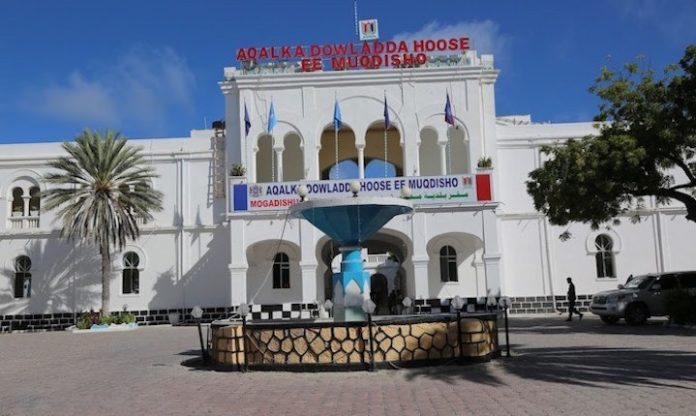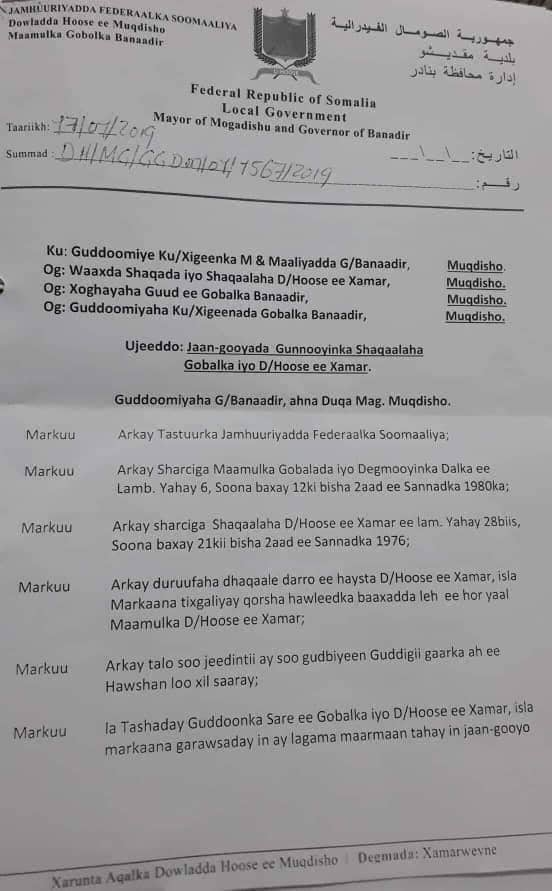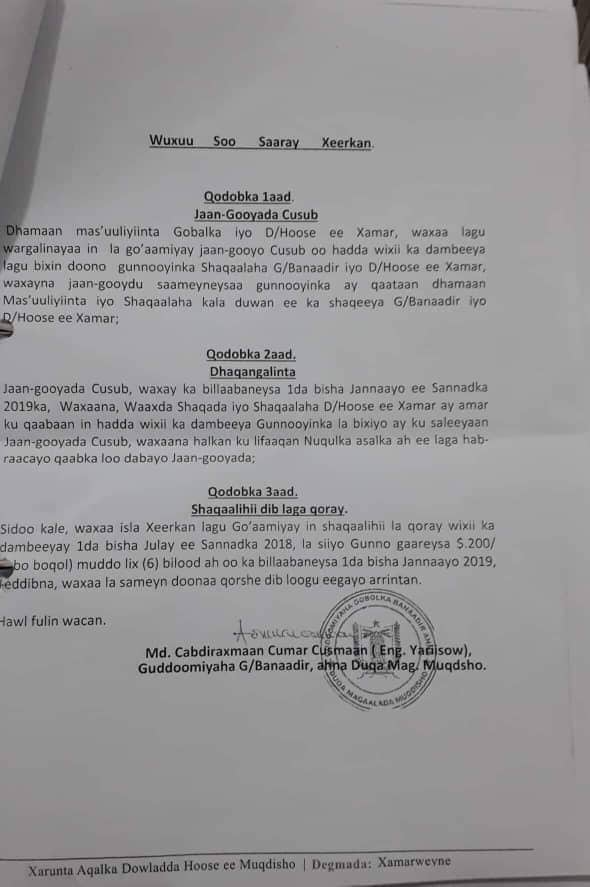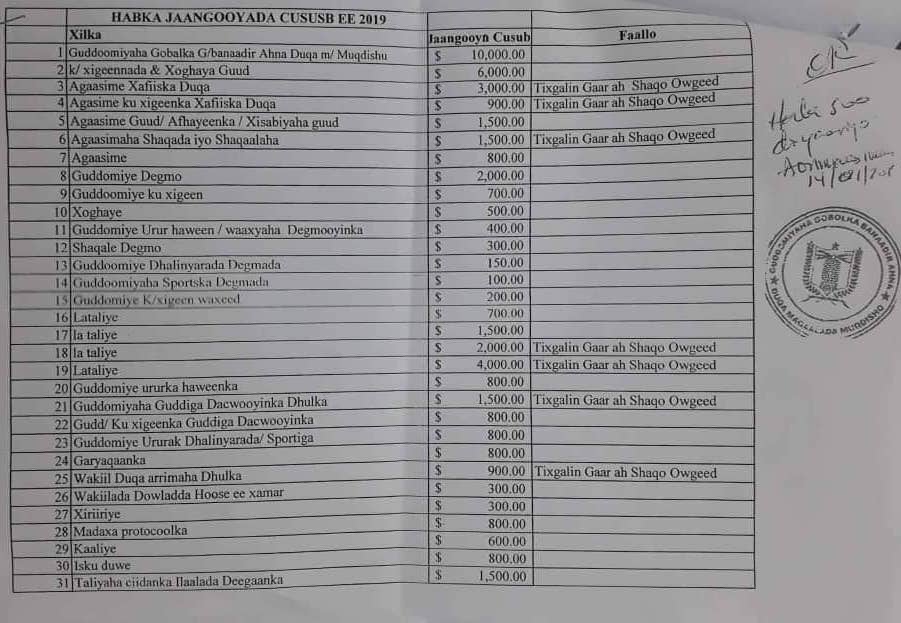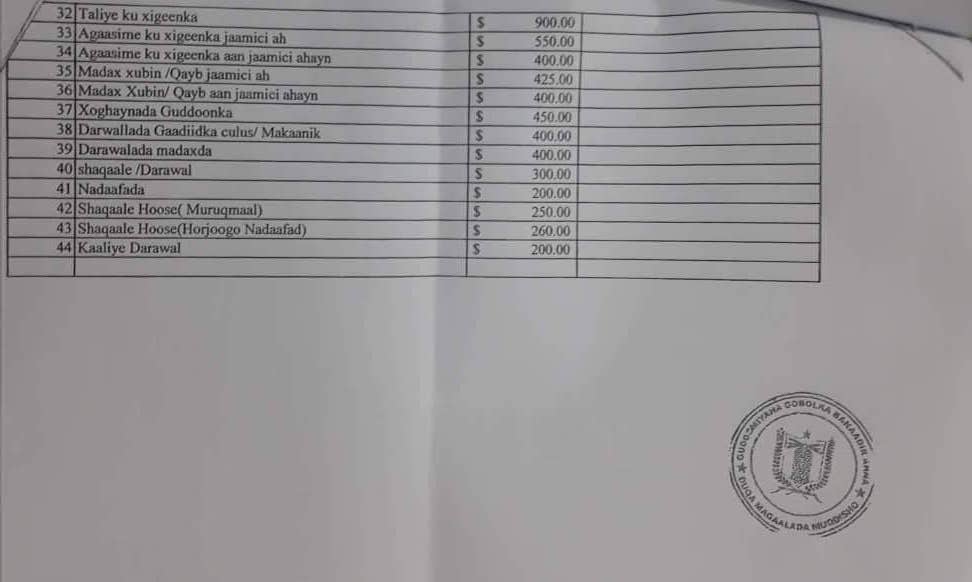For a city whose security is largely manned and financed by the international community either through the Africa Union or with funds directly payable to the federal coffer, the Mayor-cum-Governor to release a decree (Act) scaling salaries to the skies, starting with his, is cameo-tragic, critics point out.
Engineer Abdirahman Omar Osman (Engineer Yarisow) signed upscaled salaries of the Mogadishu municipal leaders, staff and security to grades that are, in some cases, much more than those of ministers and vice ministers.
At the head of the new list is his at US Dollars 10 000 and at the bottom of which are cleaners at US Dollars 200 each. The Mayor signed it into law 17 January 2019.
The Mayor-cum-Governor deputies each gets US Dollars 6000 per month. What is in the list called advisors – four unspecified positions – get US$4000, US$2000, US$1500 and US$700, respectively.
The new scales, the signed law indicates, are effective from st January this year.
The international community is footing the bill for over 22000-strong troops drawn from several African countries struggling to physically subdue the Islamist Al Shabaab in order for the war-devastated country to get back on its feet. Besides the AMISOM troops, some of whom attend to policing matters, there is an unrevealed troop presence representing the United States, the United Kingdom, and Turkey who attend to other angles of the training and support of the army, the police force, and other security branches.
Reports put the combined salaries and allowances of over 320 members of the federal parliament, including security and extraordinary sessions, at over US$5000 each.
Declared salaries of ministers and vice ministers hover around US$3000 each, not counting housing, security, transport and a myriad of other allowances.
An army private and a police constable braving militant bullets round the clock, in contrast, draw US$100 or less a month.
The anomaly is repeated over the other five federal states of Puntland, Hirshabelle, Galmudug, Southwest and Jubaland – parliaments, cabinets of ‘ministers’, security forces, electoral commissions, judicial systems, and the rest.
The international community, if nothing else, needs to come up with an exit strategy which reassesses the runaway salaries and allowances of Somalia leaders in order to descale them to levels that the country itself can sustain without the billions of inflowing aid money, political analysts point out. This is especially potent, they state, since not only salaries and stipends come from the international community but also the greater bulk of the federal development plans.
Equitable allocation and share of the international bounty have been at the center of Federal and States differences in the past which the newly inaugurated president of the federal state of Puntland is currently trying to bridge in Garowe.























